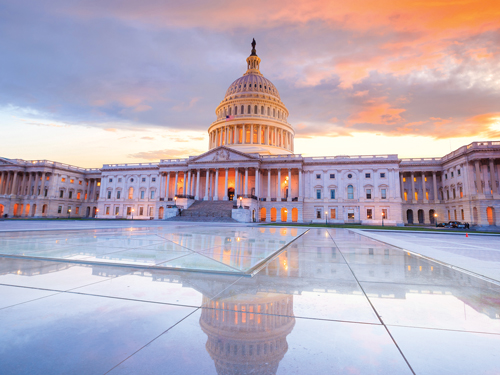by Jules Davis
Download a pdf copy of this article
 Several restrictive laws have successfully been enacted in the United States that hinder or prevent Reiki practitioners in those states, and some local areas, from practicing Reiki freely. In addition, several bills have been presented designed to license energy healing practices that impose unnecessarily strict regulations along with an exorbitant licensing fee. As a community, we must stay engaged and diligent in monitoring proposed Reiki legislation so we can come together to stop these detrimental bills from being promoted and enacted. This article is a call for your attention and support so you can help maintain a healthy Reiki community.
Several restrictive laws have successfully been enacted in the United States that hinder or prevent Reiki practitioners in those states, and some local areas, from practicing Reiki freely. In addition, several bills have been presented designed to license energy healing practices that impose unnecessarily strict regulations along with an exorbitant licensing fee. As a community, we must stay engaged and diligent in monitoring proposed Reiki legislation so we can come together to stop these detrimental bills from being promoted and enacted. This article is a call for your attention and support so you can help maintain a healthy Reiki community.
In May 2021, an email was sent to each International Center for Reiki Training Licensed Reiki Master Teacher (LRMT) asking if anyone would be available to join William Rand in monitoring legislative activity affecting Reiki. I had no prior personal experience working with legislators, but I was intrigued, so I volunteered to take part along with fellow LRMTs Tracey Sullivan and Kris Valentine. The four of us formed what has since become the “International Center for Reiki Training Legislative Committee.” We meet regularly to discuss and act on various bills and issues regarding Reiki and legislation. Our aim is to keep Reiki free from unnecessary legislative restrictions and accessible for all.
I have spent the last year expanding my knowledge and learning about the rules, protocols, and procedures involving Reiki and legislation. As a committee, we have proactively gotten legislation passed or shelved when necessary. As an example, along with other members of the Reiki community, we brought awareness to bills detrimental to Reiki in Massachusetts and Oregon that ultimately went into a form of legislative limbo for now. We also helped a legislator in Connecticut with a bill supportive of Reiki we are hopeful will get passed in 2023.
What’s fascinating about the United States is every state has its own style of governance, and there is no uniform process in how state legislatures operate. As an example, in states like California and Michigan, the state legislators work in their positions full time, meaning they are in session throughout the year. However, in other states like Connecticut or Kansas, they work part time and are only in session for part of the year. As a result of being part time, only a limited number of bills can get voted on per session, so sometimes, it can take years to get a bill from conception to the Governor’s desk for a signature.
Besides state legislatures, local legislative ordinances may be more restrictive than statewide regulations. Therefore, it is always a good idea to check with the state and local governing bodies about what you need to do to practice Reiki in your community.
Why Do We Need to Monitor Legislation for Reiki?
We became inspired to form a committee because of a detrimental bill being presented in Massachusetts (S.221/H.350) seeking to license Reiki practitioners and teachers. This bill had a myriad of issues, including designating a council, poorly educated in the practice of Reiki to determine who is qualified to practice and teach Reiki. In addition, it would charge excessive fees upwards of $8000.00, making it unaffordable for most Reiki practitioners and teachers to operate within that state. To put things into perspective, a physician’s license in Massachusetts is $600.00.(1)
There have also been instances in some states where bills and local ordinances have been passed or presented that would require Reiki practitioners to have massage licenses, not be allowed to charge for their services or be prohibited entirely from using hands-on techniques during treatment.
If this type of legislation is passed, it might set a dangerous precedent for the same thing to occur in other states, limiting people’s access to Reiki. Thus, regardless of your state, it’s always a good idea to be aware of legislation regarding the practice of Reiki so you can protect your personal interests.
Keep in mind that it is much harder to reverse or amend a disadvantageous bill that has already been passed than to prevent one from initially being passed. So, staying aware of the laws that are being proposed in your state is important if you want to be effective in protecting the practice of Reiki.
Why Do They Want to Regulate Reiki?
Most of it, unfortunately, boils down to money and power. States receive significant revenue from licensing fees. As an example, in Massachusetts, the detrimental bill I previously mentioned was sponsored by the Attorney General, who presented it as being needed to prevent crimes like human trafficking. Yet there isn’t any evidence that substantiates any such claims within the Massachusetts Reiki community, nor anywhere else.
Reiki often gets thrown into massage therapy bills because it gives the massage schools power to control the practice’s educational and vocational aspects and to increase revenue be adding additional students to their classes. Unfortunately, this ultimately confuses many people as they believe Reiki is a form of massage and try to regulate it similarly.
Other schools and organizations have attempted to benefit by becoming the only option for Reiki training and energy licensing procedures. This benefit includes some standards of “assessing an energy practitioner’s skills.”(2)
What Protections Are in Place Now?
Some of the most valuable legislative protections in place right now are referred to as “safe harbor exemption laws.” However, they are named differently within the text of the bill in each individual state.
Safe harbor exemption laws are written and enacted to protect consumer access to a broad range of complementary health and wellness practitioners who are not currently regulated by the states and do not rise to the level of concern requiring state oversight, certification, registration, or licensure. This prevents them from being required to have a state license to practice.
There are currently 11 states with active Safe Harbor Bills. They include Arizona, California, Colorado, Idaho, Louisiana, Maine, Minnesota, New Mexico, Nevada, Oklahoma, and Rhode Island. Obviously, we need all states to enact a bill like this.
At the time of authoring this article, there are two safe harbor bills we are actively promoting and supporting that are still making their way through the legislative process. These bills are in the Commonwealth of Massachusetts and Connecticut.
Safe harbor exemption laws are important as they could be a barrier to future attempts at licensing energy healing modalities if enacted in every state.
While safe harbor laws are wonderful, remember local ordinances can still restrict your right to practice freely, so please do your due diligence. If you find your local municipality has a restriction against your Reiki practice, safe harbor bills have been pointed to as a precedent to reverse more restrictive local regulations.
Note: Just because there is not a safe harbor bill in your state, it does not mean you cannot practice Reiki there. There may be other exemptions written into bills in place already or there may not currently be any restrictions on the practice of Reiki.
What Can You Do to Get a Safe Harbor Bill Enacted in Your State?
The best thing to do if you want to be proactive about any legislation is to build relationships with your state and local legislators. Here are some additional tips:
- Find out what the laws are presently in your state and local area. A good place to start your research, if not readily available, is to look into the massage therapy acts and ordinances.
- Discover who your state and local representatives are by searching on Google or your state and local websites.
- Research how your representatives have voted previously. See what you have in common. You may connect on more issues than Reiki.
- Ask Reiki to help you set your political affiliation/bias aside. Of course, you may not agree on everything the legislator does politically, and that’s okay!
- Reach out to them and connect, as it’s their job to listen to their constituents’ needs and desires.
- Always be professional and courteous.
- Speak intelligently with your legislators. Educate them about the benefits of Reiki and how it does not cause harm and share your healing experiences with its practice. You might even offer to give them a free session!
- Thank them for their time.
- Find other like-minded Reiki or complementary wellness practitioners in your area or state to establish a grassroots network. This step will help you gain momentum and attention from your legislators.
- Invite Reiki to guide the process and help you create peaceful and productive legislative relationships.
Once you have established these connections, please reach out to the ICRT Legislative Committee at keepreikifree@reiki.org. Thanks to the incredible work of Diane Miller and her organization, the National Health Freedom Coalition, we will do our best to support you in helping get the language of the bills written. We will also help you promote the bill to the at-large Reiki community and interact with the legislators as needed.
How Else Can I Get Involved?
While some people are hands-on and enjoy being in direct relationships with others, I understand it is not for everyone. Here are some additional options for how you can still support our mission from a distance:
- Send Reiki to the legislative process.
- Help spread awareness within your community and perhaps inspire others to get involved.
- Send letters in support of or in opposition to bills we support or oppose.
- Share our social media posts.
- Educate people about the benefits of Reiki!
In a short time, I have learned the wonderful benefits and necessity of being proactive in the legislative process. I, along with the ICRT Legislative Committee, believe all Reiki lineages should have a right to practice and teach Reiki. If a state or other governing body regulates Reiki, students would be limited in teacher choice. Also, the licensing fees may be so outrageous, as they are in Massachusetts, it would prevent people from wanting to start their practice, limiting people’s access to Reiki practitioners. The regulators who may not know or care about the practice of Reiki could dictate who can teach, what can be taught, and how to practice Reiki. Any variances could cause fines and jail time.
Ten years ago, when I first started my Reiki journey, I was truly fortunate I could study various systems of Reiki, and I am so grateful I did. I strongly believe Reiki is a remarkably effective healing system that should be affordable and available to everyone. The best way to continue fulfilling Mikao Usui’s wish to spread Reiki worldwide is by making it widely accessible. This goal motivates me to be a part of such an incredible committee, bringing awareness to Reiki and legislation within our community. ν
Jules is an ICRT Licensed Reiki Master Teacher of online and in-person classes for Usui/Holy Fire® III Reiki, Holy Fire® III Karuna Reiki® and ICRT Animal Reiki. She is the owner of Auralux in Los Angeles where she provides services as a psychic, medium, medical intuitive, crystal and sound healer, and spiritual teacher. You may contact Jules by email at auraluxreiki@gmail.com or phone at (323) 988-1115 and visit her website at www.healingwithjules.com.
This is the complete article that appeared in the Fall 2022 issue of Reiki News Magazine. To read other articles, please subscribe.
Download a pdf copy of this article
Endnotes
1 “Board of Registration in Medicine—Schedule of Fees,” Mass.gov, https://www.mass.gov/service-details/board-of-registration-in-medicine-schedule-of-fees.
2 “Mission,” National Certification Center of Energy Practitioners, NCCOEP, https://nccoep.org/mission. https://nccoep.org/mission.







